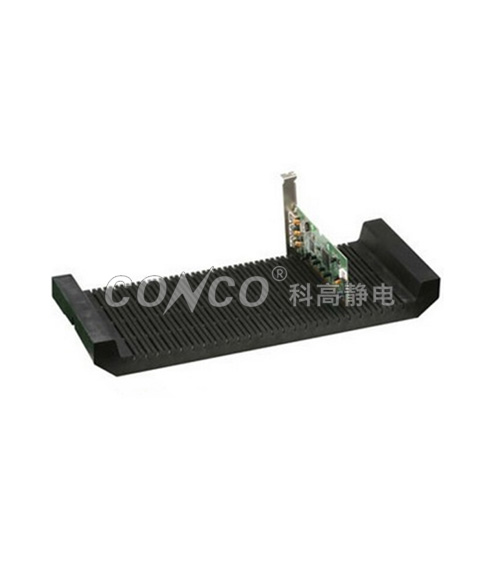Ground
Grounding is very important to reduce the static charge generated on the conductor. The human body is a conductor and the main source of static electricity. Therefore, we must reduce the electrostatic charge generated on people who touch sensitive anti-static components or components. The best way to prevent static electricity on the human body is to ground the human body.
Several personal grounding devices:
In the industry, the wrist strap is the most commonly used grounding device. The wrist strap will safely and effectively drain away the static charge on your body. To play the role of a wrist strap reasonably, you need to contact the skin reasonably. A dirty or loose wrist strap may retain the static charge that leaks away, rendering the anti-static control ineffective. Conductive footwear or foot grounding can be used or supplement the lack of wrist straps.
Workstation grounding device
Conductive or static dissipative work surface is an indispensable part of an electrostatic safety workstation, especially those where hand assembly occurs. When using a wrist strap, it is necessary to clean the work surface and properly connect to a common point for grounding. Necessary, conductive or static dissipative materials can generate static charges, but when they are properly grounded, they can effectively leak static charges.
shield
The next concept is to isolate vital parts and components during storage or transportation. Isolated from charged objects or charged electrostatic fields. During storage or transportation, insulators are the best way to prevent electrostatic discharge damage. Since grounding cannot drain away static charges or insulators, it is necessary to isolate sensitive vital parts and components from them. Reducing conventional plastic and other types of insulators in static work, shipping, and handling areas is the best way to isolate products from insulators. Isolation can also be accomplished by restricting access to the entire work area or workstation. Finally, we take advantage of the fact that static charges cannot enter containers made of conductive materials or conductive layers. This effect is called the Faraday Cup effect. When storing and transporting electronic components or loading circuit boards, ensure that containers with similar Faraday cup characteristics are used. These containers will be isolated from electrostatic discharge injuries. Faraday cups are usually used to control electrostatic discharge. They are metal bags, conductive bags, and turnover boxes with lids. These Faraday cups can carry these electrostatic charges on the surface and remove it before opening.
neutralize
Using static elimination equipment, its main component is an ion generator. Since grounding and isolation will not release charges from insulators such as synthetic cloth or conventional plastics, neutralization is important. The neutralization or removal of the electrical charges that are naturally generated in the process work from the insulator is called ionization. Ions are simply charged substances that exist in the air. Ions are produced by natural energy substances, including sunlight, lighting, open flames and radiation.
We can generate trillions of ions through an ionizer. The ionizer uses high voltage to generate a balanced mixture of charged ions, and uses a fan to help the ions drift to objects or areas to neutralize them. Ionization can neutralize the static charge on the insulator within eight seconds, so it can reduce their potential damage. Ionization is not a substitute for grounding or isolation. Ionization only reduces the possibility or risk of electrostatic discharge accidents.


